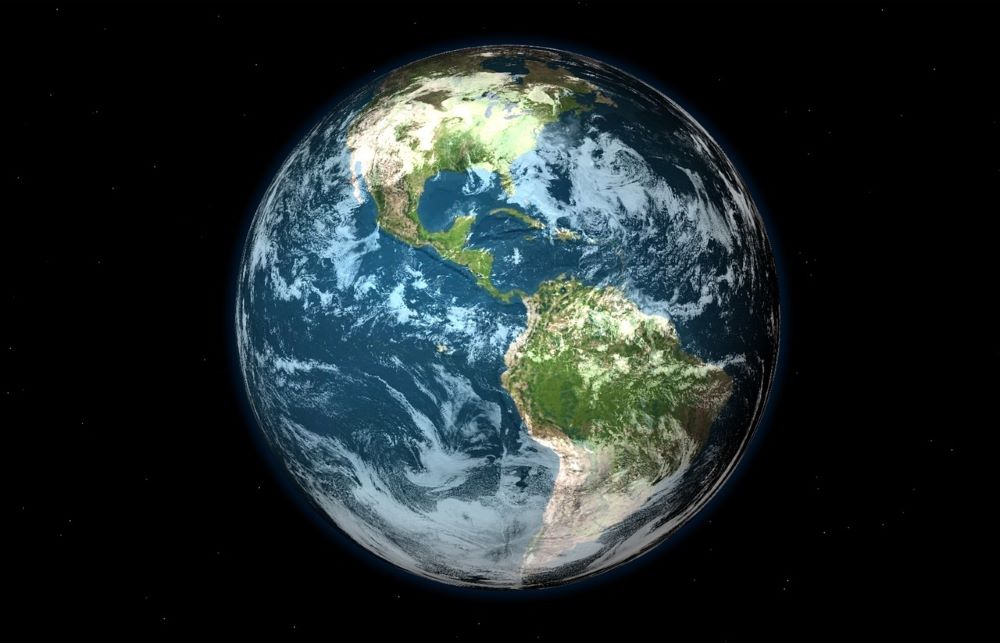
(Pixabay/Sergio Hernandez)
A little over 10 years ago, I received a gift that I had longed for many times but thought was an impossible dream — until it came true. I had frequently visited the website of the Dominican sisters of An Tairseach in Wicklow, Ireland, and had read about their 10-week sabbatical on the "New Story." It seemed like a real privilege to participate in such an experience, and thanks to their generosity and a scholarship, I was able to join the group in March 2014.
To enter the New Story, one must be willing to let go of old molds — those that seem immovable — to make way for new ones. Two and a half months is enough time to "let yourself be molded." All that is required is an open attitude.
What are these new molds and do they have something to do with what Jesus tells us in the Gospel: "new wine in new wineskins"?
The New Story is not only about openness to new scientific discoveries; accepting it means breaking with many values that we have cultivated as the best over the last 200 years. These values are based on an anthropocentrism that still significantly impacts us.
"Do not conform yourselves to this age but be transformed by the renewal of your mind, that you may discern what is the will of God, what is good and pleasing and perfect" (Romans 12:2).
For Paul, the mindset is the mindset of Jesus. For us Christians, what is truly new is a return to our origins, to the Gospel. For 20 centuries, we have lived according to a theology that has dismissed other perspectives that could transform not only our thoughts but also our values and, consequently, our behavior.
A conversion of mind and heart, taking seriously the message of Jesus to decrease, to "humble ourselves," and to serve, can be a genuine hope for a radical change for our Earth.
We have been taught that our beliefs are absolute and unchanging. While some peripheral things may change, our theology has thus far been centered on separation, individual redemption and substitutionary atonement: the belief that when Jesus Christ died, he suffered in place of fallen humanity.
It often seems that the entire purpose of creation was for Jesus to die on the cross to save us from our sins. His message, his life, his very being appear to have a single purpose.
However, other theologians present us another way of understanding Jesus.
Patrick Carolan, in his essay Return to the Garden, writes, "We created our rules and rituals, our spiritual history in a way that reflects the theology based on the idea that Jesus came to save us, not to liberate us."
In the same essay, Carolan quotes Blessed John Dun Scotus, a Franciscan theologian who argues that "The Incarnation of the Son of God is the very reason for the whole Creation. To think that God would have given up such a task had Adam not sinned would be quite unreasonable! I say, therefore, that the fall was not the cause of Christ's predestination and that if no one had fallen neither the angel nor man in this hypothesis Christ would still have predestined in the same say."
Understanding that "the Christ" is God's plan and that we are called to participate in that filiation in Him fills us with both joy and responsibility. It is about much more than salvation at the end of our lives (in an individualistic way).
Advertisement
It is humanity — the whole of creation, according to some translations — that awaits the revelation of what it means to be children of God. This same humanity cherishes one hope: to attain the freedom and glory of the children of God (Romans 8:19-21).
If we place the emphasis on our personal relationship with God (to achieve our salvation) in the same way as our relationship with others and with all of creation, we are missing the point. Jesus teaches us that the first priority is to build relationships with all of creation and only then can we truly say we are in relationship with God.
We are not separate from creation; we are creation in evolution. Therefore, our role is crucial — to understand ourselves, relate to, care for and respect everything around us. We are part of life in its fullest sense, and our actions are essential, as is knowing how to place ourselves before this mystery, which is much bigger than we imagine and deserves all our respect and attention.
Such a change of perspective transforms our worldview. This new vision changed my perspective on life, meaning and purpose. It fit me much better than all the old paradigms because I realized it made more sense. It closed cycles that previously remained open and keeps me alert, as nothing is ever finished but is constantly evolving.
Our identity is not found in immovable beliefs in a changing world that challenges us. Reflection, prayer and open dialogue help us understand that what is important is not certainties but following the conscience we form in the light of the Gospel and the lives of those who reveal God’s goodness and grace.
As Chapter 8 of the letter to the Romans continues, we remain in that birthing process where life is as present as death. All creation suffers the consequences not of a first sin, but of our refusal to understand that everything is part of life and that our actions, and sometimes omissions, prevent it from moving forward.
We are celebrating the ninth anniversary of Pope Francis' encyclical Laudato Si'. At last, after so many years, it seems that his message is reaching many dioceses around the world, and ecological delegations are opening.
Everything we can do in favor of life is invaluable, but let us not stop there. We are the first who need a radical conversion because we have believed ourselves to be the bearers of the only truth, and in the name of our religion, we have destroyed rather than build.
A conversion of mind and heart, taking seriously the message of Jesus to decrease, to "humble ourselves," and to serve, can be a genuine hope for a radical change for our Earth.
Let us not view it as if we were outside it; that perspective is one of superiority. We are earth, we are clay, we are creatures like all other creatures. We are united, intertwined, dependent on each other, as Thomas Berry would say. On the other hand, we are unique — no one is identical to us, and that uniqueness is important. The purpose of everything and everyone is communion.
There is much work to be done, much to change. Let us not be afraid. We are links in a chain in a definitive historical moment where small patches are not enough; life is at stake.







